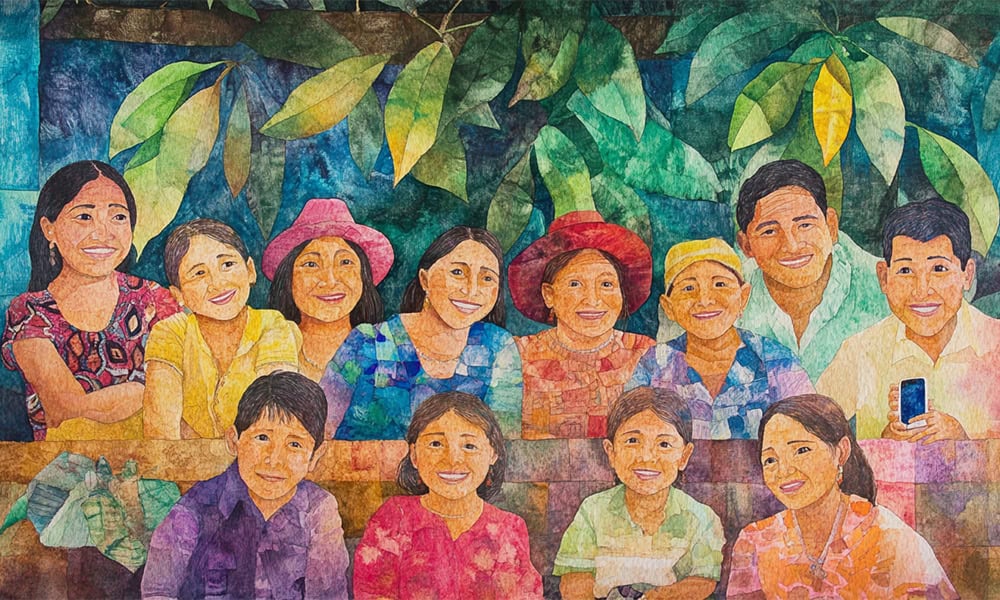My Tica wife was one of 14 kids. Twelve of the fourteen, all between the ages of early 50s to mid 70s are still alive. They communicate regularly, and by regularly, I mean daily. Every day I listen to my wife doing a video call with one or more of her siblings. All are in Costa Rica except her youngest brother who lives and works legally in the Miami area.
They have a Whatsapp group that includes various sons, daughters, nieces and nephews. It is not unusual for my wife to click on and hear a stream of a dozen messages. These can be divided into four types: Greetings (“Buenos dias a todos!”), Food updates (“Que ricos chicharrones comemos hoy”), Weather updates (“Mucha lluvia aca”), and family updates (“Mija ya trabaja en una oficina.”)
I occasionally complain to her. ‘I love your family’, I might say, ‘it’s just that there are SO many of them’. I do not understand why they have to be in touch so regularly to discuss what are often the most mundane topics. She counters by saying that this is her culture, a lifelong closeness among a large family who grew up on a remote farm and were always reliant on each other in most every aspect of everyday life. In her culture it is not unusual for adults to live at home with their parents until marriage.
A few years back, one of her older brothers was in failing health. The family was in constant contact with group calls and when he died, there were many tears and they all gathered within 48 hours for his funeral. He was laid to rest in a local cemetery, sealed in an above ground coffin.
I was one of five kids. Three of us are still here on earth. We are spread out between Costa Rica, North Carolina and California. We keep in sporadic touch through online texts. My older brother and I communicate in a unique way. We play Words With Friends on Facebook, and use the WWF message board for all family news. My younger brother and I use Whatsapp. We sometimes go a week or more between contact.
In late December our sister, the oldest of five, died after a bout with cancer. She informed us of her diagnosis and a week later she was gone. We exchanged daily messages, and relied on her partner for updates. My two daughters, both of whom chose to go out on their own before turning 20, took it hard as she was a wonderful aunt. My brothers and I were more stoic. My sister had chosen aquamation, a form of cremation using heat, water pressure and alkali to break the body down to a sort of powder. My younger brother and my elder daughter both lived close to my sister, and collected urns with her remains.
This week, my family is in communication and has begun making plans for a reunion and memorial service sometime in 2025. Now I have to go, because my wife is on a video call with her brother in Florida, and he needs my help with some possible questions on his upcoming citizenship test. The contrast in our cultures is clear – while we look forward to getting out on our own, they get out on their own but never really move away.






